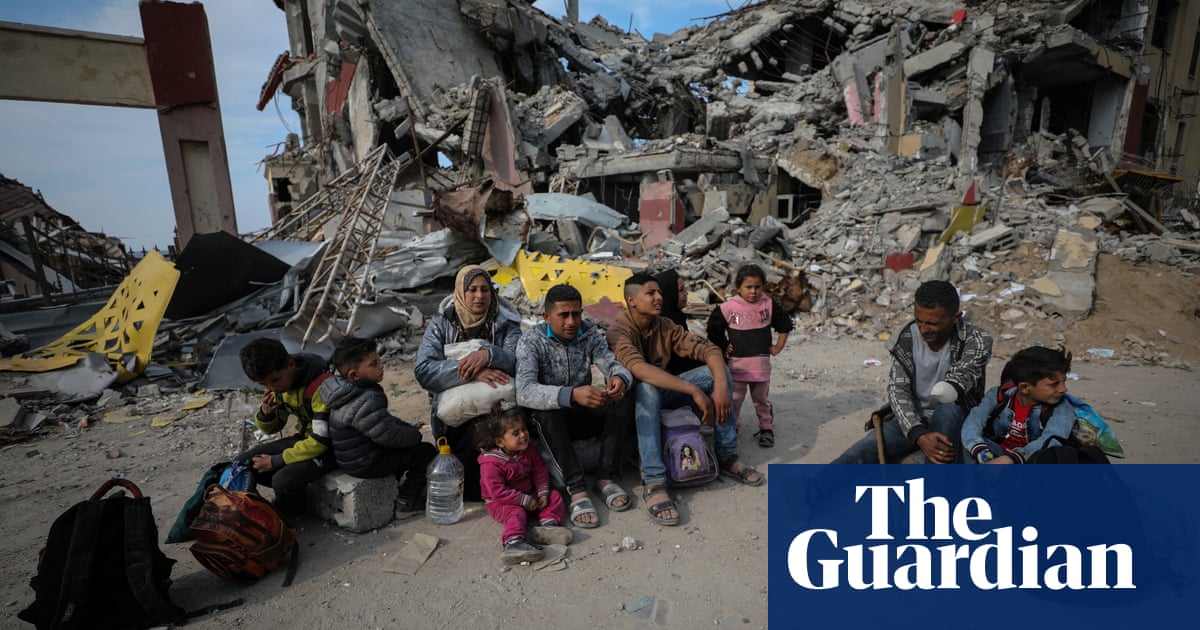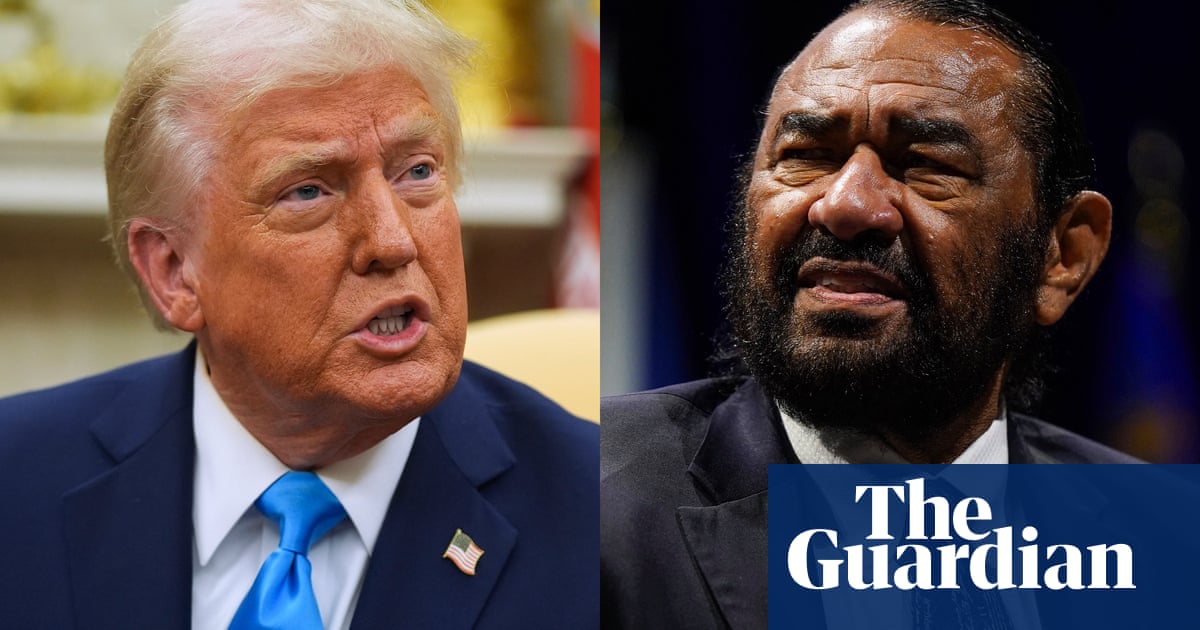Donald Trump’s proposal to permanently move millions of Palestinians out of Gaza to allow its reconstruction under US “ownership” could amount to a war crime or crime against humanity, experts in international law have said.
The experts said the US president’s framing of his plan without any reference to international law set a dangerous precedent that would encourage other world leaders to do similarly and contribute to a global breakdown of peace and security.
“I was shocked as a scholar, a teacher of international law and as a human being,” said Dr Maria Varaki, a lecturer in international law at the department of war studies at King’s College London. “A head of state who makes no reference to international law … That’s very dangerous.”
The two most obvious codes potentially breached by the Trump plan are the Geneva conventions – international treaties agreed in 1949 governing the treatment of civilians and military personnel during conflicts – and the 1998 Rome statute, which established the international criminal court to bring to justice individuals suspected of war crimes, crimes against humanity and genocide where states either cannot or will not do so themselves.
Under both codes, the arbitrary and permanent forcible transfer of populations is a crime.
The International court of justice, the United Nations’ highest court, which adjudicates disputes between states, said in July that Israel met the definition of an occupying power in Gaza and so was bound by obligations set out under the fourth Geneva convention as well as its obligations under international human rights law.
There is provision, in some very specific circumstances and only when there is either military necessity or an imperative to protect their lives, for the temporary displacement of civilians, but not outside occupied territory and for the shortest time possible, said Sarah Singer, professor of refugee law at London University.
Under the Rome statute, which draws on the Geneva conventions, deportation or forcible transfer of a population is a crime, especially when committed as part of a wider or systematic attack on civilians.
Trump claimed that Palestinians in Gaza would be happy to leave. If true, this would have great legal significance, even if this is unlikely to have been one of the president’s primary concerns. However, the claim is systematically contradicted by Palestinians in the territory and elsewhere.
Mahmoud Abbas, the Palestinian president, on Wednesday called for the UN to “protect the Palestinian people and their inalienable rights”, saying that what Trump wanted to do would be “a serious violation of international law”.
In addition, Martin Lemberg-Pedersen, an associate professor at the University of Warwick, said that by describing Gaza as a “demolition site” and so a place where human life could not be sustained, Trump had made an implicit admission that Israel had violated principles of discrimination and proportionality during its offensive in Gaza.
The Israeli offensive reduced swaths of the territory to rubble, destroying schools, homes, roads, clinics, sanitation systems, farms and much more. Huge areas of ruins are contaminated by chemicals and unexploded bombs.
Lemberg-Pedersen said Trump’s vocabulary had been revealing, and historic given his office and the implications of his statement.
“Trump referred to Gaza as a demolition site and said that those who go back there would die … That appears to be an admission that the Israeli offensive has resulted in the destruction of civilian infrastructure to the point where it cannot sustain people,” Lemberg-Pedersen said.
The Geneva conventions and Rome statute forbid attacks which do not distinguish between military targets and civilians or civilian homes and infrastructure, unless absolutely necessary for military operations. Collective punishment, including mass displacement and targeting of entire communities, is strictly prohibited.
Singer said that in the ICJ’s July 2024 advisory opinion, forcible transfer included coercion where civilians had no choice but to leave because to remain would put their lives at risk.
“So you have to leave because you have no options, when the alternative would be starvation, for example,” Singer told the Guardian.
Trump said current residents of Gaza would be moved and resettled “permanently” to be replaced by “the world’s people” who would inhabit an “international, unbelievable place”, though he added that many people including Palestinians would live there.
Volker Türk, UN high commissioner for human rights, said on Wednesday that the right to self-determination was a fundamental principle of international law and must be protected by all states.
Critics have said Trump’s plan “amount[s] to ethnic cleansing”, which the UN has defined as “… rendering an area ethnically homogeneous by using force or intimidation to remove persons of given groups from the area.”
The term was first used during the 1990s conflicts in the former Yugoslavia, but is not recognised as a crime in itself in international law.
“In legal terms, there is no code or international agreement with the words ethnic cleansing,” said Elena Katselli, of the Newcastle University law school.
But ethnic cleansing frequently includes a collection of criminal practices such as murder, rape, torture, arbitrary arrest or deliberate attacks on civilians, which could be war crimes, crimes against humanity or, in some circumstances, genocide.
“It is clear to me that powerful states want to rewrite the laws,” Katselli said.
Varaki decried Trump’s “absolute silence on the fundamentals of the international order”.
“We have no norms at all, so all the things that have been achieved since the second world war are threatened,” she said.
Article by:Source: Jason Burke International security correspondent













